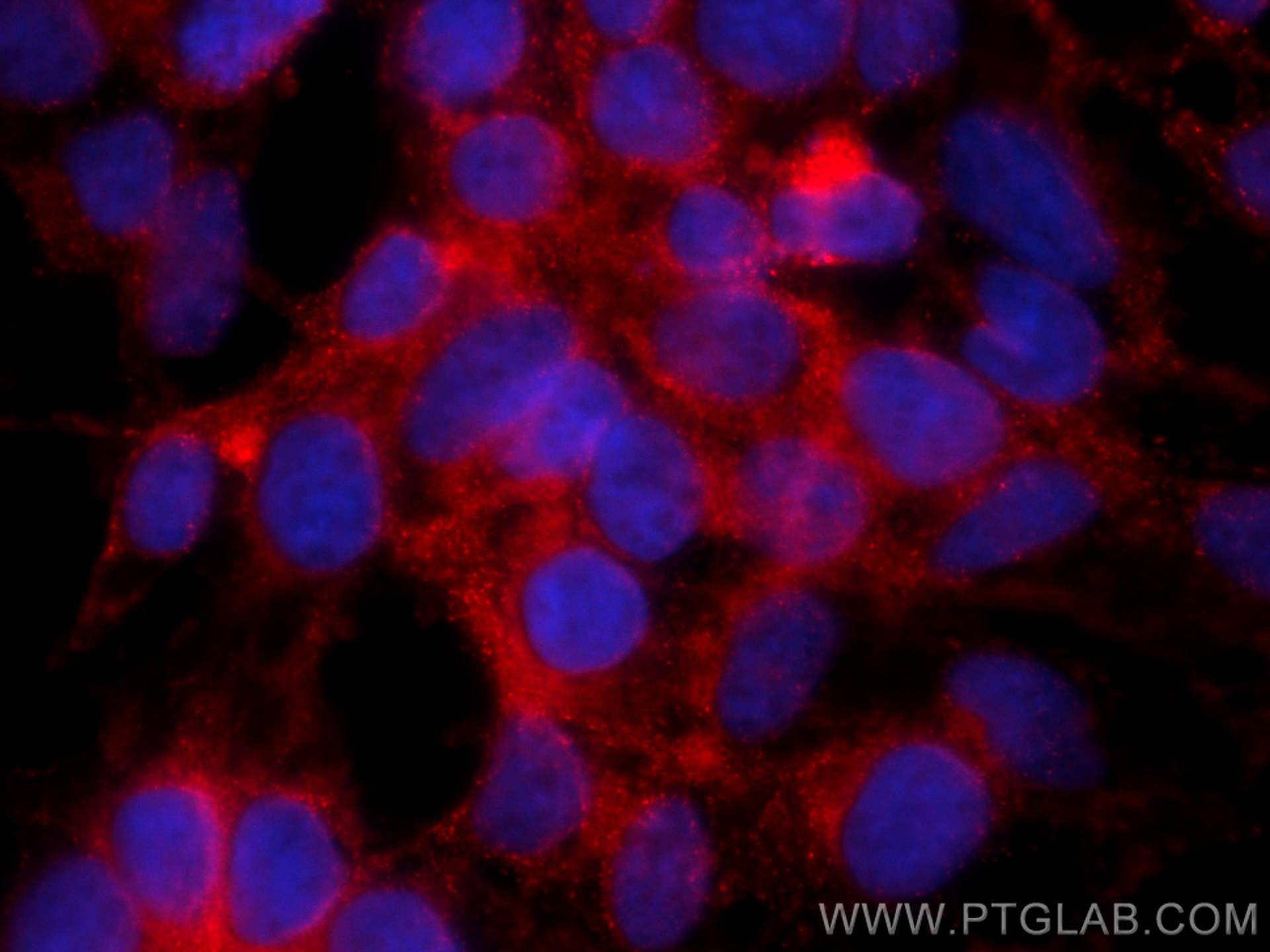Anticorps Monoclonal anti-FAF2
FAF2 Monoclonal Antibody for IF
Hôte / Isotype
Mouse / IgG1
Réactivité testée
Humain, souris
Applications
IF
Conjugaison
CoraLite®594 Fluorescent Dye
CloneNo.
3H6D2
N° de cat : CL594-66629
Synonymes
Galerie de données de validation
Applications testées
| Résultats positifs en IF | cellules HEK-293, |
Dilution recommandée
| Application | Dilution |
|---|---|
| Immunofluorescence (IF) | IF : 1:50-1:500 |
| It is recommended that this reagent should be titrated in each testing system to obtain optimal results. | |
| Sample-dependent, check data in validation data gallery | |
Informations sur le produit
CL594-66629 cible FAF2 dans les applications de IF et montre une réactivité avec des échantillons Humain, souris
| Réactivité | Humain, souris |
| Hôte / Isotype | Mouse / IgG1 |
| Clonalité | Monoclonal |
| Type | Anticorps |
| Immunogène | FAF2 Protéine recombinante Ag21536 |
| Nom complet | Fas associated factor family member 2 |
| Masse moléculaire calculée | 445 aa, 53 kDa |
| Poids moléculaire observé | 51 kDa |
| Numéro d’acquisition GenBank | BC014001 |
| Symbole du gène | FAF2 |
| Identification du gène (NCBI) | 23197 |
| Conjugaison | CoraLite®594 Fluorescent Dye |
| Excitation/Emission maxima wavelengths | 588 nm / 604 nm |
| Forme | Liquide |
| Méthode de purification | Purification par protéine G |
| Tampon de stockage | PBS avec glycérol à 50 %, Proclin300 à 0,05 % et BSA à 0,5 %, pH 7,3. |
| Conditions de stockage | Stocker à -20 °C. Éviter toute exposition à la lumière. Stable pendant un an après l'expédition. L'aliquotage n'est pas nécessaire pour le stockage à -20oC Les 20ul contiennent 0,1% de BSA. |
Informations générales
Protein ETEA (FAF2, or UBXD8) is a homolog to Fas-associated factor 1 (FAF1), which is involved in Fas-mediated apoptosis. ETEA protein directly interacts with and negatively regulates neurofibromin. ETEA contains both UBA and UBX domains and overexpression of ETEA downregulates neurofibromin in human cells. It may play a role in the translocation of terminally misfolded proteins from the endoplasmic reticulum lumen to the cytoplasm and their degradation by the proteasome. ETEA is highly expressed in peripheral blood of patients with atopic dermatitis (AD) compared to normal individuals, and may regulate the resistance to apoptosis that is observed in T cells and eosinophils of AD patients.
Protocole
| Product Specific Protocols | |
|---|---|
| IF protocol for CL594 FAF2 antibody CL594-66629 | Download protocol |
| Standard Protocols | |
|---|---|
| Click here to view our Standard Protocols |


